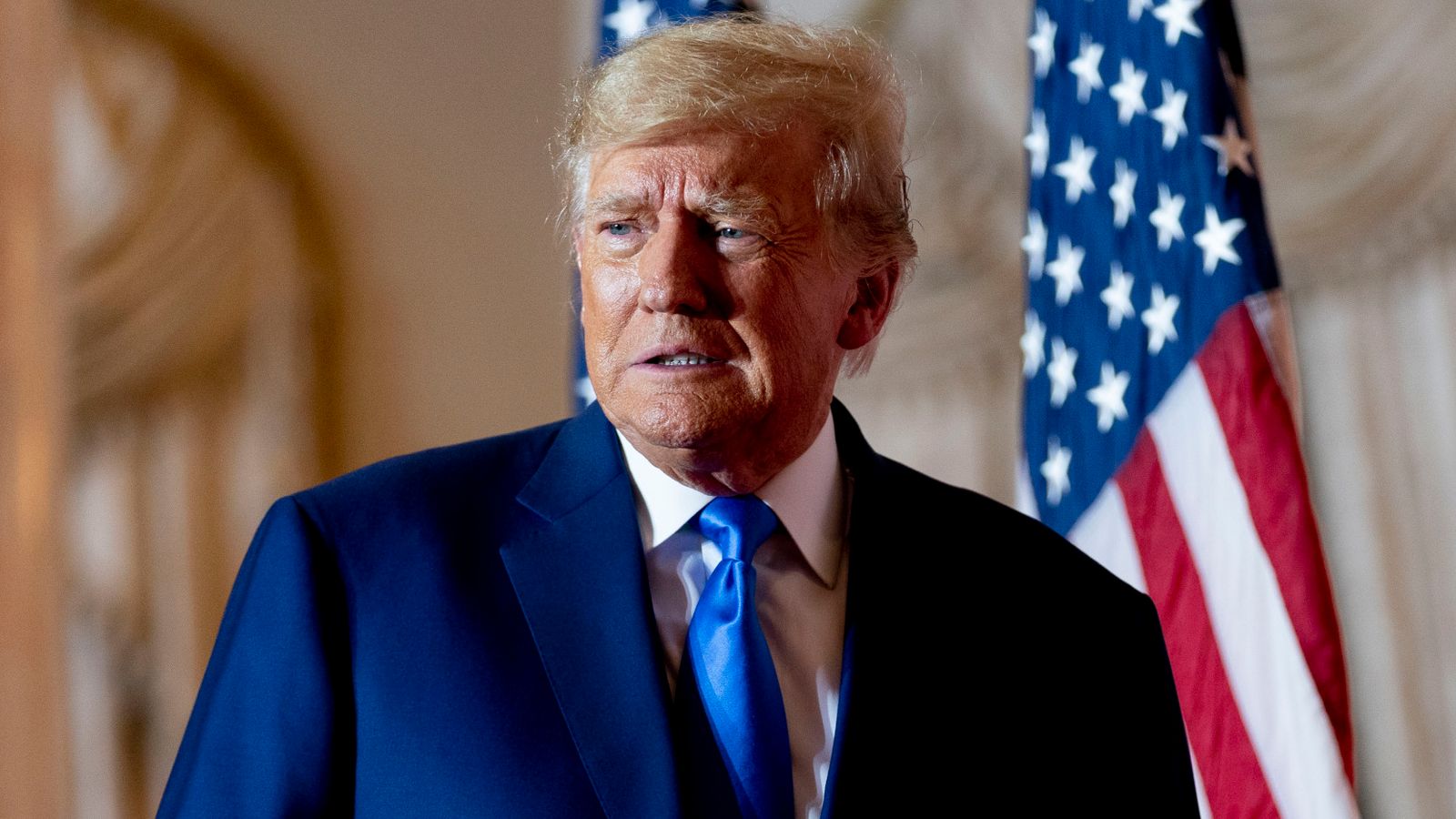Insurrection – defined as a violent uprising against an authority or government.
It is quite the charge against a former president of the United States, even if it’s not quite the surprise.
Over months, the story told by committee members and their witnesses cast Donald Trump as architect-in-chief of an attempted coup – his “last stand”, as they put it.
Gripping behind-the-scenes footage combined with jaw-dropping testimony to present a picture of Mr Trump and his team trying to cling onto power against the odds and against the law of the land.
Committee members accused the former president and they found an echo in their witnesses.
Testimony came from people in Mr Trump’s orbit who brought first-hand eyewitness evidence that seemed to speak to the last throes of a dictatorship, tin pot with a survival plan to match.
The conclusions of criminal referral are damning, no doubt. And yet, immediately, their significance was again the stuff of partisan political knockabout.
January 6 committee recommends criminal charges against Donald Trump
Vote by January 6th committee could dictate whether Donald Trump spends time on the campaign trail or in the courthouse
House committee investigating Capitol riots to vote on recommending criminal charges against Donald Trump – reports
There are Republicans on the committee but they are no friends of Mr Trump. Consequently, Mr Trump, and Trumpists, repeatedly challenge its integrity and neutrality.
What would elevate their findings above political theatre would be a response from the Department of Justice (DoJ) that aligned with their conclusions and for charges to be laid.
It’s not a given.
Please use Chrome browser for a more accessible video player
As convincing and as powerful as the words and pictures presented by the January 6 committee, we didn’t hear a case for the defence. There was no cross-examination of witnesses, no forensic questioning of the sort they would face in a courtroom test.
So while we can assume that DoJ lawyers will pore over the content of the committee’s report and cross-reference it with their own detective work – carrying, as it does, more than 1,200 witness interviews and depositions and over a million pages of records – we can’t take it for granted that they will see it as a basis for prosecution.
Their projection extends past the criminal charge to the prospect of a guilty verdict beyond reasonable doubt. They will interrogate the evidence with a rigour not reflected in the Capitol committee room, and so may not reach the same conclusions.
The ability to demonstrate criminal intent will be key.
Read more:
January 6 committee recommends criminal charges against Donald Trump
Vote by January 6 committee could dictate whether Trump spends time on the campaign trail or in the courthouse
When a president uses a phrase such as “fight like hell”, is that giving aid and comfort to insurrection or is it merely providing encouragement to non-violent political struggle, as protected under the First Amendment? You see the challenge.
A justice department looking at Mr Trump on a number of matters might feel their chances of successful prosecution lie further south, at Mar-a-Lago in Florida for example, which is the focus for their enquiries into the handling of classified documents. A black-and-white case built on paperwork is, likely, less arguable.
However they respond to the January 6 committee, Mr Trump is damaged.
This Capitol Hill retrospective might have been entitled ‘Insurrection: The Inside Story’ – it has been a prime-time, made-for-TV event that cast Mr Trump as an arch-villain in a White House that reeked of corruption.
It’s not what he needs as he seeks traction towards a political comeback.
Whilst he may enjoy a bounce in a support base offended by the victim narrative, the Republican party at large will struggle with the consequences for his, and their, electoral viability.








